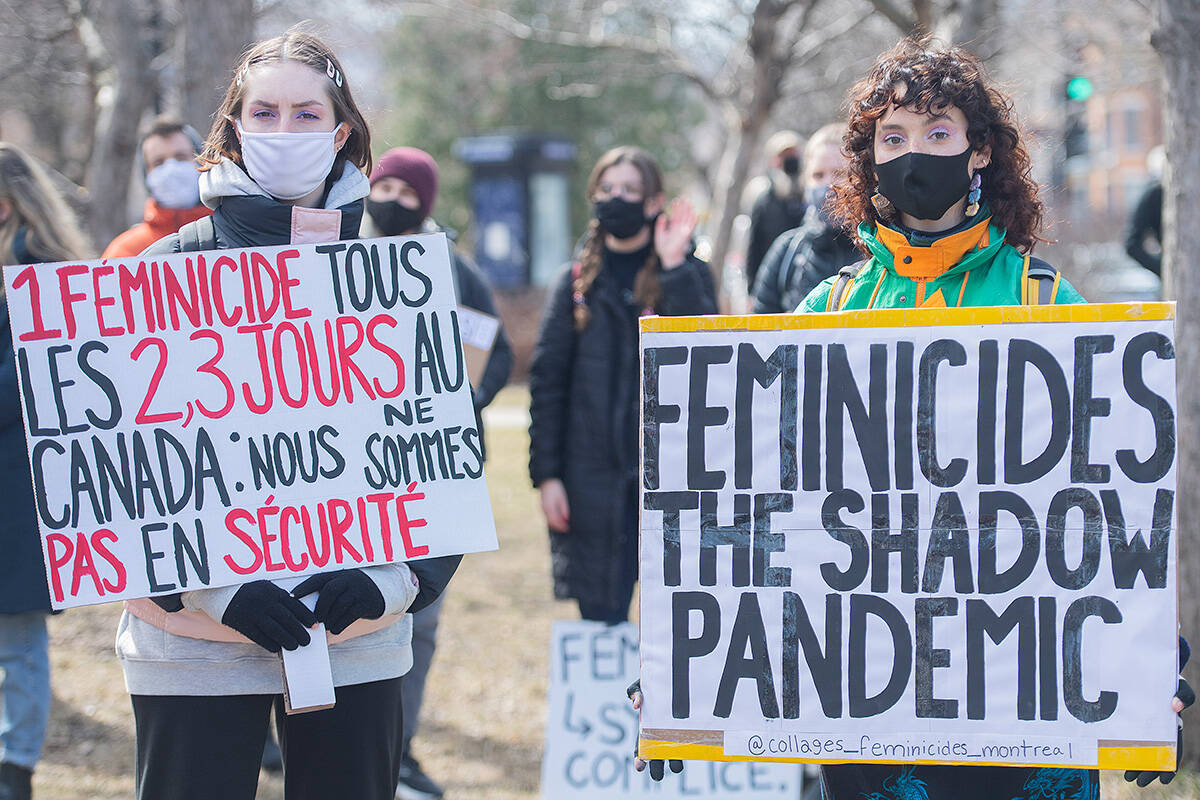Organizations that support survivors of intimate partner violence are backing the federal government’s proposed gun legislation, but say there needs to be a far greater focus on non-law enforcement solutions too.
The Liberals tabled Bill C-21 at the end of May, with new measures that would place a national freeze on handguns, take away firearms licences from people involved in acts of domestic violence or criminal harassment, and allow courts to order people considered a danger to themselves or others to temporarily surrender their firearms, among other things.
“I think it is really a great step in the right direction,” Andrea Gunraj, the vice president of public engagement for the Canadian Women’s Foundation, said.
In Canada, 44 per cent of women aged 15 or older who have ever been in an intimate relationship say they have experienced some form of intimate partner violence, whether physical, sexual or psychological, according to self-reported data to Statistics Canada. This increases for women in rural settings, Indigenous women, and women with disabilities.
Men also endure violence from their partners, but at lower rates.
The presence of a firearm is the greatest risk factor for that violence turning lethal. A 2003 study on femicide in abusive relationships found women are five times more likely to be killed if their abuser has access to a firearm.
Even when they aren’t used lethally, the presence of guns have a significant impact on people in abusive situations, according to Angela Marie MacDougall, the executive director of Battered Women’s Support Services in Vancouver.
“Survivors are aware when there is a firearm in the house. They know that it’s an implied threat,” she said. MacDougall estimated one in ten of the women their service supports say their abuser had access to a gun.
READ ALSO: Measures in new bill to keep guns from abusers, stalkers, welcomed by advocates
The primary part of the new proposed gun legislation that is meant to protect survivors are the red and yellow flag laws. A red flag law would allow anyone to make an application to a court to immediately remove a firearm from someone for 30 days if they pose a risk to themselves or someone else. This could be extended for up to five years if the risk continues.
The yellow flag law would allow a Chief Firearms Officer to order a 30-day suspension if it is believed the owner has violated the conditions of their licence.
Both MacDougall and Gunraj said giving survivors another means to report violence is important, but emphasized that the reasons survivors often don’t go forward are complex.
Part of that is a mistrust of law enforcement and the justice system, which has so often failed survivors, MacDougall said. The irony, according to her, is that Canada actually has world class policies around gender-based violence, but that justice systems actors often fail to follow them.
She pointed out that while many police departments now have domestic violence units, the first point of contact for survivors is almost always patrol officers, who have far less training on what to do. MacDougall said many of the women she speaks with tell her police never referred them to a support service when they reported their abuse.
The great frustration for MacDougall and Gunraj, is that the largest sums of money intended to combat gender-based violence appear to go to the criminal justice system, instead of preventative action or support services.
“We’ve been focusing on the criminal legal system as the way to address violence, and it’s the least accessed part by survivors and the least effective, frankly,” MacDougall said.
Her and Gunraj agree enacting tougher gun regulations is important, but say if Canada is serious about ending intimate partner violence it will focus on the root causes too.
“Violence in relationships is a social problem and most of it is learned behaviour,” MacDougall said.
To combat it, there needs to be a coordinated shift in education across Canada, she said.
There also needs to be far greater funding for support services, Gunraj added. Women fleeing violence shouldn’t be expected to sit on a waiting list, she said.
Many of their recommendations are laid out in a guide on ending gender-based violence submitted to the federal government last year.
READ ALSO: Women’s groups warn Liberals against ‘downloading’ gun control to potential victims
@janeskrypnek
jane.skrypnek@bpdigital.ca
Like us on Facebook and follow us on Twitter.
British Columbiadomestic violencegun controlgun lawsGun Violencewomen shelters

